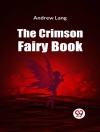Louis Becke’s ‘John Frewen, South Sea Whaler’ is a captivating exploration of the whaling industry in the South Pacific during the late 19th century. The novel employs a rich narrative style that intertwines vivid descriptions of the oceanic landscape with the harrowing realities of life at sea. Through its complex characters and suspenseful plot, the book delves into themes of ambition, survival, and the moral ambiguities inherent in colonial enterprise, reflecting the maritime ethos and the often harsh conditions faced by whalers. Becke’s use of authentic dialogue and carefully crafted settings offers readers a window into a world profoundly affected by both natural beauty and human greed. Louis Becke, an Australian author, was born into a maritime family, which likely influenced his extensive knowledge of the whaling trade depicted in the novel. His own experiences as a sailor and trader throughout the Pacific islands enriched his narrative, infusing it with a personal and authentic quality. Becke’s travels and keen observations of island cultures provide depth to the characters and settings, situating the novel within a broader historical and cultural context that examines the interplay between indigenous peoples and European colonizers. ‘John Frewen, South Sea Whaler’ is a must-read for enthusiasts of historical fiction, maritime history, and those interested in the complexities of colonial interactions. Becke’s vivid storytelling and moral inquiries create an engaging literary experience that invites readers to ponder the implications of human endeavor amidst the beauty and brutality of the natural world.
A propos de l’auteur
Louis Becke, born George Lewis Becke in 1855, was an Australian writer famed for weaving tales of adventure and the exotic allure of the Pacific Islands into the tapestry of Western literature. Becke’s roaming spirit found solace at sea, and by the age of fourteen, he embarked upon a seafaring life that deeply informed his literary creations. His experiences among the myriad islands and vibrant cultures of the South Seas laid the groundwork for his unique narrative style, deftly blending his intimate knowledge of maritime life with the colorful customs of island peoples (Kern, 1944). Becke’s writing career truly burgeoned with ‘Pacific Tales’ (1897), a collection of stories reflective of his Pacific experiences. However, it is ‘John Frewen, South Sea Whaler’ (1900) that stands as a quintessential representation of his literary craftsmanship, capturing the tumultuous and often violent life of a whaler in the South Seas with vivid imagery and gripping action. Becke’s body of work encapsulates the romanticism of 19th-century adventure writing, while also evincing a nuanced understanding of colonial impact upon indigenous cultures. His stories continue to be a valuable resource for scholars studying the representation of the Pacific and colonialism in literature (Day, 2003). Becke’s legacy lies in the adventurous spirit of his stories and the window they open into a world of high seas and far-flung islands, rivaled only by the likes of Robert Louis Stevenson, whom Becke admired and emulated in his prose (Davies, 2006).












